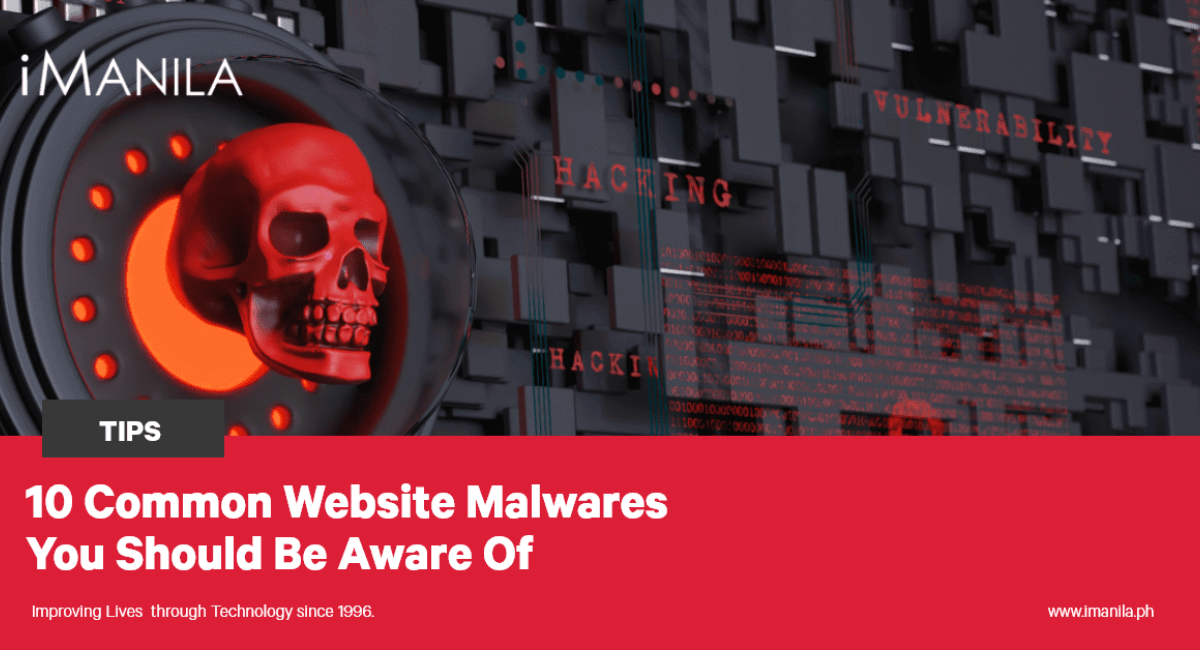Malware is a massive threat to your computer that is constantly evolving. The more we access the internet, the more advanced cyber threats become. Malware is dispersing via websites, email messages, and malicious links that trick you into installing it without your knowledge. Individuals, businesses, and governments can all suffer major losses due to malware. In such a way it can steal personal and financial information, compromise security, and disrupt critical services.
In this digital era, the most critical factor is safeguarding sensitive information. Educating oneself on these types of attacks can help reduce the risk of falling victim to this digital threat.
Majority of individuals assume that only viruses are capable of infecting a computer. However, malware comes in various types, each with its purpose. Below we’ll take an in-depth look at some of the most common malware attacks and how they work.
Ransomware
Ransomware is malware that encrypts your files, then demands payment for the decryption key. The purpose of ransomware is to generate revenue for its creators, and it’s one of the fastest-growing types of malware. Since ransomware is designed to extort money from you in exchange for access to your data, it can be harmful if you don’t have backups or copies of your encrypted files. However, if you have backups, there’s no reason to pay up just because someone is threatening you with something they’re probably incapable of doing.
Viruses
A virus infects the computer and causes it to perform specific unwanted tasks. They do this by modifying or corrupting the operating system. Some types of viruses have other purposes. For example, some viruses may delete or move files from your computer or encrypt your files so that you cannot access them anymore.
Installing antivirus software is the only guaranteed way to keep your device virus-free. It will run periodic computer scans to detect and remove malicious software. If any viruses are detected, they will be removed immediately, preventing them from spreading to other files or corrupting your system.
Worms
Files on local and network drives are vulnerable to being corrupted by worms. It can cause severe damage to your computer and make it unusable. It replicates itself to infect other systems and spreads by moving from one computer to another across a network. To trick users into downloading and opening a worm, cyber attackers often disguise it as a seemingly harmless file or link. It can wipe data or grant hackers access to victims’ computers. It is essential to be familiar with worms and their prevention. Keeping your system up-to-date with patches will help prevent worms from spreading and new ones from getting in.
Spyware
Spyware is designed to spy on a user’s activities. It covertly monitors and gathers information from a user’s computer or device without their knowledge or consent. It can collect a wide range of personal data, including login credentials, browsing history, keystrokes, and even webcam or microphone recordings. Spyware can often go undetected for extended periods, which is one of its most alarming characteristics. Users may only realize that their personal information is being harvested or that their online activity is being monitored once it is too late, which can lead to serious privacy violations and even financial losses.
Bots
Bots are programmed to imitate human behavior by executing duties like web crawling, data scraping, and social media automation. They are software programs that automate tasks on the internet. Bots come in a variety of types, ranging from helpful to malicious. For example, search engine bots help make the internet more accessible and efficient by indexing and organizing content. On the other hand, malicious bots can steal personal information, spread spam and phishing messages, and launch cyberattacks. The threat posed by these automated programs can take various forms, including DDOS, spam, content duplication, and so on. It can also be used to mine cryptocurrency, generate fraudulent ad clicks, and engage in other illegal activities.
Adware
Adware is a type of malware that displays unwanted advertisements on your computer and can create substantial disruptions to the user’s browsing experience and a slowdown in device performance. Additionally, it may collect personal information and track your browsing history, allowing them to target their ads more effectively and increasing the risk of identity theft and other types of fraud. Adware can be installed on your computer without your knowledge, often during the installation of another program that is frequently bundled with free downloads. Once the adware is installed, it will automatically display ads or pop-ups on your computer.
Trojans
Trojan malware enables unauthorized access to a computer or network. They can steal or delete data and gain access to confidential files and programs. Many trojans are created to imitate other programs so that they can corrupt a system without being noticed. Once they have gained access, some trojans will remain dormant on your computer to await further instructions from their host hacker or immediately begin their malicious activities.
Fileless malware
Fileless malware does not require a file to run. Instead, it remains in the main memory (RAM) and never touches the hard disk, and then uses the user’s software and programs against them. In addition to being undetectable by standard means, it has no recognizable code or signature. It utilizes legitimate tools and functions of the host operating system to evade detection. While traditional antivirus software may detect files containing malicious code, they cannot identify some types of fileless malware because they don’t have any files. This makes it easier for an attacker to avoid detection by antivirus software, as most of these programs rely on files to determine what to protect.
Rootkits
Rootkits are designed to evade detection by antivirus and other security tools. Attackers produce and disseminate them to obtain access and manipulate compromised systems. A rootkit may be packaged as a standalone application or masked within another software so that it cannot be easily detected. Rootkits are incapable of self-replication. Therefore, they rely on hidden methods to infect systems. Rootkits are implanted until an attacker activates them by granting access to rootkit installation software.
Mobile malware
Mobile malware is transmitted through downloading applications from unreliable sources. Malicious applications may appear legal, but they may conceal malware that might damage the device and steal important data. It can also spread through phishing scams, including fake messages or emails claiming to come from a reputable source, such as a bank or government agency. The messages may request personal information or a click on a link that installs malware on the user’s device.
As they say “prevention is better than the cure”. Keep your servers and websites secured and efficiently working by taking proactive measures. This entails installing web security and hiring a reliable technical support team. Find it here in iManila!
With 27 years of experience in the industry and an IT company at its core, iManila, having been one of the first Internet Service Providers in the Philippines, a web development company and a top digital marketing company in the country, is committed to providing our clients with innovative information technology, web, and digital solutions.
As one of the best web hosting and email hosting providers in the Philippines, iManila is also a full-service business web development company and digital marketing agency in the Philippines ready to help you with your web design and development, website update and maintenance, web hosting, email hosting, cloud hosting, dedicated server, technical, desktop and remote support, and digital marketing services needs. Talk to us!


